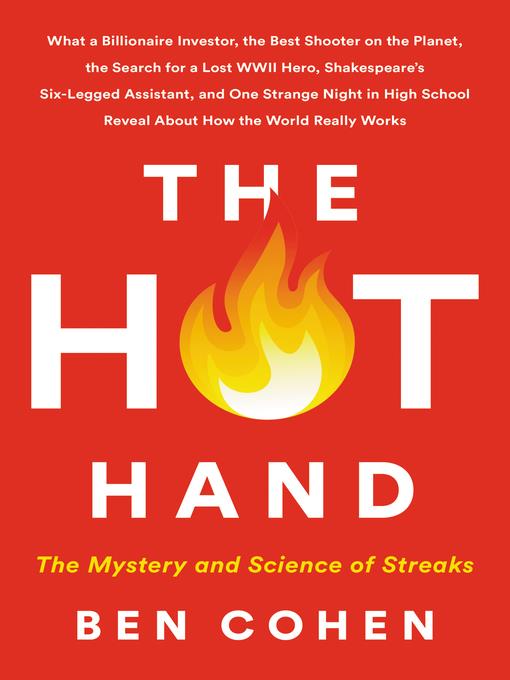
The Hot Hand
The Mystery and Science of Streaks
کتاب های مرتبط
- اطلاعات
- نقد و بررسی
- دیدگاه کاربران
نقد و بررسی

January 13, 2020
In this meandering debut, Cohen, a Wall Street Journal sports reporter, asks what makes for winning streaks. The “hot hand” of the title is the state of being in the zone, of making one win after another, seemingly effortlessly. Cohen’s lifelong love for basketball is an excellent excuse for exploring why this happens, which he does through stories of a high school basketball team that used data to improve its game, as well as through a video game developer, a viola player, a sculptor, and many others. Is the hot hand real—can a person or team identify what led to a winning streak and thus replicate those factors? Sometimes, waffles Cohen, and when one can harness a streak, it’s a lucrative and rewarding endeavor. The narratives are reasonably entertaining and the math persuasive, but without much rationale except expressing the author’s love for basketball, the execution is unfocused. Readers looking for an answer as to whether they can strategize their winning streaks could be forgiven for wanting something more decisive than the author’s tepid “well, kinda.” Agent: Eric Lupfer, Fletcher & Company.

February 1, 2020
Wall Street Journal sports reporter Cohen looks into the odd "science of streaks." Is there a "hot hand," the term basketball players use to describe that magical, endorphin-inducing moment when you can't miss a shot and "achieve some elevated state of ability in which you feel briefly superhuman"? It's one of the finest of psychological states, and if most of us don't land in it regularly, there are people like Steph Curry to study, as the author does. By the numbers, Curry shouldn't be the superstar shooter that he is--even though he's 6-feet-3 he's still smaller than most of the players he goes up against, a key datum point. What changed him was a summer spent teaching himself to shoot all over again: lifting the ball over his head and releasing it as he was jumping up, essentially making himself as tall as the defenders who would otherwise block his shots. That summer involved thousands of shots, and in the end, it made Curry "the best shooter the sport of basketball had ever seen." This case study provides a springboard for Cohen to look at such things as the construction of data sets. One of the cardinal sins involving data is to make conclusions with numbers that are too small to support them--whence the "law of small numbers," proposed by the Israeli psychologists Daniel Kahneman and Amos Tversky, who themselves have written an improbably brilliant hot streak of scholarly papers. Cohen examines the use of those data sets to crunch all sorts of perhaps unlikely problems: Is a supposed lost masterpiece by Vincent van Gogh the real deal? Did Raoul Wallenberg, the Swedish diplomat, really die of a heart attack, as the Soviets proclaimed, or did he die in the gulag? Cohen returns, always, to the game of basketball, but he pauses along the way to provide fascinating looks at coin tosses, investments, farm yields, and other real-world instances of how probability plays out in the world. Sports fans and science geeks alike will enjoy these travels in the world where numbers, luck, and superstardom meet.
COPYRIGHT(2020) Kirkus Reviews, ALL RIGHTS RESERVED.

























دیدگاه کاربران